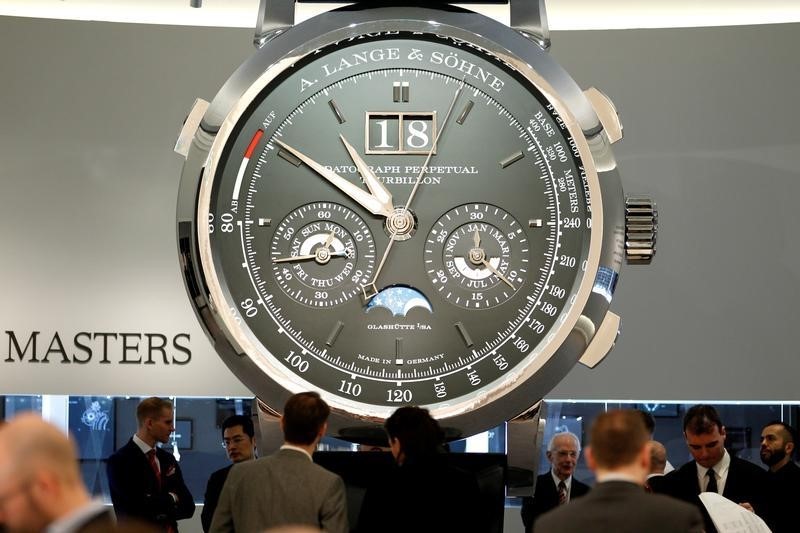Intel stock spikes after report of possible US government stake
By Geoffrey Smith
Investing.com -- Luxury stocks across Europe underperformed on Friday after Swiss-based Richemont (SIX:CFR) warned of a big hit to sales from the closure of Chinese boutiques due to COVID-19 lockdowns.
The Chinese economy will suffer a slowdown for "longer than most people think," Chairman Johann Rupert told a webinar accompanying the presentation of the group's full-year results. He added that some 40% of the group's boutiques in China are currently closed due to lockdowns.
The news overshadowed a strong set of results that showed operating profit more than doubling in the 12 months through March, helped by an expansion of over 6 percentage points in its operating margin. Sales rose 44% at constant exchange rates. Rupert highlighted strong local demand in Europe, which "more than offset" a decline caused by the drop in inbound tourism due to pandemic travel restrictions.
Net profit rose 61% to 2.08 billion euros ($2.18 billion) allowing the company to raise its dividend by 13%.
However, it was Rupert's comments on China that dominated reactions, due to the outsized importance of that market to the world's biggest luxury names. Richemont itself gets over 40% of its global sales from the Asia-Pacific region, the bulk of which is from mainland China and the territories of Hong Kong and Macau. Shanghai, its most lucrative regional market on the mainland, has been under various degrees of lockdown for over two months now.
Richemont stock plunged as much as 11% on the news to hit a seven-month low in early trading. It pared some of those losses later to trade down 9.4% by 5 AM ET (0900 GMT). The gloom also hit other luxury companies with big exposure to China: LVMH (EPA:LVMH) stock fell 0.4%, while Christian Dior (EPA:DIOR) stock fell 0.6% and Hermes (EPA:HRMS) stock fell 1.0%.
The only big stock in the space to escape the general underperformance was Burberry (LON:BRBY), whose numbers earlier in the week had been well-received. Burberry is the only high-end fashion name still in positive territory for the week, with a gain of 2.4%.
Despite the fact that the group's figures suggested its client base is largely insensitive to price hikes, Rupert warned of the risk of inflation over the coming year, given that the response needed to bring it under control could hurt growth badly.
"Even if the worst of COVID is hopefully behind us, we face a global environment which is the most unsettled we have experienced for a number of years," Rupert said in his letter to shareholders. The troubled global backdrop was also evident in a 98 million euros charge for discontinuing its business in Russia, coupled with an associated inventory write-down of 70 million euros.
